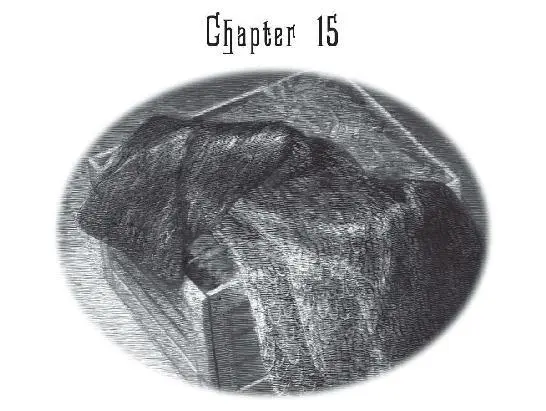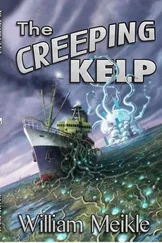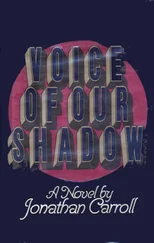“He was certainly over-egging it,” I said. “He really piled it on.”
“And here’s the clincher,” George said darkly. “Note how he didn’t eat his slice.”
“We can hardly dis someone on the grounds they turned down cake, George.”
“You bet we can. In my eyes, refusing cake is an immoral act. ‘I’m not a cakey person’—those were his actual words. Brrr.”
“And it was Holly’s homemade one, too,” Lockwood said. “Well, one way or another, we’re in agreement that he seemed a bit nuts. I’m sure it’s a bad cluster, but that Shadow business at the end was completely over the top. So, we’ll worry about Danny Skinner another day— if we get the time. For now, there are far more urgent things on our agenda, namely Lucy’s problem. And as to that”—he grinned at me—“I’ve just had a brilliant idea.”

Precisely what Lockwood’s plan was, we didn’t immediately hear. He refused to be drawn out and, not long afterward, went off somewhere on his own. Physically, I was still recovering from my exertions of the previous forty-eight hours, so I was happy enough to stay at Portland Row. I made myself useful as best I could, helping George with the dishes; after that, when he and Holly went down to the office to start on company business, I wandered into the garden.
The gnarled old apple tree was budding, and the unkempt grass sparkled in the sunshine. I sat on the patio, among the weeds, staring at the backs of houses across the gardens. Flowers whose names I didn’t know were showing under the walls, and birds I didn’t recognize swooped low between the trees, filling the air with sound. Last summer, once or twice, when we weren’t out risking our lives, we’d sat here in the evenings. We’d always said we should do it more, but it never happened—we were just too busy. Besides, none of us really knew what to do with relaxation; it was so much more natural to just go out and stab something. So the garden was generally ignored.
It felt odd to have the time now to sit out there. I was in a kind of limbo, neither part of Lockwood & Co. nor entirely separated from it. And my emotions were similarly conflicted. Half of me still believed I should be somewhere else, holding fast to a solitary career that couldn’t imperil Lockwood and the others. This side of me felt deeply uneasy about asking them to help find the skull. It would be a dangerous job, no question about it. And yet…I couldn’t feel entirely guilty. Because right now I needed assistance. I needed some friends. And hadn’t George told me outside the Guppy house that Lockwood had been continually throwing himself into danger these last few months? So what did it matter if I asked him to help me do something tricky? Why should I feel bad about that? What would it actually change?
It was hard to make sense of what I was feeling. The only thing I did know for certain as I sat in the garden was that it was nice to be back, even if only for a short while.
Shortly after lunch, Lockwood returned, smelling vaguely of rotten wood and seaweed, so I knew he’d been to see Flo Bones. The first part of his plan was apparently under way.
“I had to promise her a year’s supply of licorice allsorts,” he said, “but I talked her into it. The next relic-men’s market is scheduled for tomorrow night. Flo’s going, so she’ll find out exactly when and where. She’ll get us to the door. Once there, guys built like gorillas will vet us. If we pass muster, we’ll be allowed into the meeting. If we don’t, we’ll be beaten senseless and our limp bodies will be tossed into the Thames. I think passing muster is the option to go for.”
“I agree,” I said. “So how are we going to do that?”
But Lockwood wouldn’t say.
The next thing that happened was that Lockwood and Holly made a trip back to my apartment in Tooting to fetch my clothes. I wasn’t allowed to come. In due course they returned, the visit having passed without incident, except that they’d bumped into my neighbor across the landing.
“He told us he’d heard noises last night,” Lockwood said. “They were coming from your room. He peeped through the spy-hole in his door and saw two men with flashlights standing in your doorway. One of them had a gun. When they saw the place was empty, they left. I’d say it was a good thing you came to us, Luce, and didn’t go back home.”
Once again I couldn’t disagree.
Holly handed me a couple of bags of my belongings. Her expression was somber. “I don’t know how to tell you this, Lucy,” she said, “but they…they messed up your place really badly.”
I stared at her. “Oh no. What did they do?”
“Oh, it was awful . Your things were scattered all over the floor, the bedclothes strewn everywhere, your drawers open and the stuff all jumbled up. There was no rhyme or reason to it. It was like a bomb had gone off. I’m so, so sorry. You must feel dreadful.”
I avoided Lockwood’s eye. “Yes, I’m really distraught they made it look so messy,” I said. “I’m glad I didn’t see that.”
Anyway, I had my clothes.
At the end of the afternoon I volunteered to make an early supper, and, under George’s supervision, I put together a swift spaghetti Bolognese. Holly had provided sponge cake for dessert.
“How come she’s suddenly baking now?” I asked. “She never touched cake before.”
George was staring at his map of England on the kitchen wall. He spoke absently. “Oh, Hol’s still fixated on salads, but don’t worry. I’m corrupting her slowly. We’ll have her scarfing junk food by and by. Have you added oregano to the sauce?”
“You already asked, and yes, I have. I think we’re almost done. What is that map, anyway? Current hauntings?”
“Mmm?” George was somewhere far away. “No…exactly the opposite. These are historic ones, going back in time to the start of the Problem. Major outbreaks by decade.” He pushed open the basement door and roared down the stairs. “ Grub’s ready! I got the info by trawling through old newspapers,” he added. “You know me.”
Lockwood and Holly emerged from below. I heated the plates under the hot tap, and served up the meal, staring at the poster through a pleasant cloud of hot steam. “I don’t get it, George,” I said. “There have been thousands of outbreaks over the years. You’ve got a lot of pins on there, but nowhere near enough to represent everything.”
“That’s because I’m only recording the first twenty clusters in each area,” George said. “The colors represent different decades, and you can see from the rings how the Problem’s gradually spread outward over the years. You remember the Chelsea case, Lucy, how I traced the original Source of that outbreak back to Aickmere’s department store by looking at cases over time? Well, this is the same thing, on a much bigger scale. And it confirms what the history books tell us: the Problem began to the southeast of London, in the county of Kent.”
“Where Marissa Fittes and Tom Rotwell were the first to fight it.” Lockwood was doling out steaming clumps of spaghetti, slathered with sauce. “This looks great, by the way, Lucy. What are those shriveled black things?”
“Mushrooms, I think. Oh no, those are the mushrooms. Actually, I don’t know what they are….Enjoy your meal.”
“The Fittes and Rotwell agencies have come a long way in fifty years,” George said as we ate. “You know there’s a statue in the town where it all began, where the two founders began investigating local ghosts? I’ve been down to see it. Frankly, it’s not very good, but it shows the two of them as teenagers, as they were when they destroyed the Mud Lane Phantom—with Tom Rotwell holding his homemade sword, and Marissa beside him with her little lantern. The two objects that became the symbols of their separate agencies. It’s funny to think of them actually being used, that first time.”
Читать дальше










